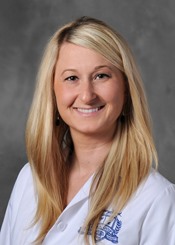Don't Miss a Beat: Addressing Cardiotoxicity in Cancer Therapies
C Glide-Hurst1*, J Harms2*, R Howell3*, (1) University of Wisconsin, Middleton, WI, (2) University of Alabama at Birmingham, Birmingham, AL, (3) UT MD Anderson Cancer Center, Houston, TX
Presentations
TH-A-BRA-0 (Thursday, 7/14/2022) 7:30 AM - 8:30 AM [Eastern Time (GMT-4)]
Ballroom A
Cardiac toxicity is a devastating complication of cancer treatment and occurs during, shortly after, or even many years after treatment. Long-term follow up of patients undergoing thoracic radiation, such as lymphoma, lung, and esophageal cancers, has shown that in particular, radiation therapy (RT) can lead to major radiation-induced cardiac toxicities like congestive heart failure and coronary artery disease. The era of cardiac radioablation has introduced new considerations into the overall cardiotoxicity landscape. This session will provide an update on the latest advances in cardiotoxicity in cancer therapies. First, we will hear about the latest imaging for anatomical targeting and substructure avoidance, including motion estimation and normal tissue response to elucidate potential biomarkers of cardiac toxicity. Then, advanced treatment planning strategies will be described including for targeted avoidance, cardiac auto-segmentation, and knowledge-bsaed planning. Finally, the latest results in developing dose response and risk prediction models for therapy-related late cardiovascular disease will be provided including how contemporary treatment planning and reconstructed dosimetry data are used to translate data from dose response models toward survivorship care.
Learning Objectives:
1. Learn about the state of the art for imaging in cardio toxicity
2. Understand the latest advances in advanced treatment planning for cardiotoxicity endpoints
3. Learn about the contemporary dose response/prediction models used for therapy-related cardiovascular diseases.
Funding Support, Disclosures, and Conflict of Interest: Dr. Glide-Hurst discloses collaborations with Philips Healthcare, GE Healthcare, ViewRay, Inc., and Modus Medical. Research partially supported by the NCI of the NIH (R01CA204189, R01HL153720 (Glide-Hurst) and U24CA055727, R01CA261750 (Howell)). Dr. Howell discloses agreements with St. Jude Children's Research Hospital and is Contract PI, Dosimetry NCI Radiation Epidemiology Branch, PHR-SSS-S-19-005730.
Keywords
Not Applicable / None Entered.
Taxonomy
Not Applicable / None Entered.
Contact Email





